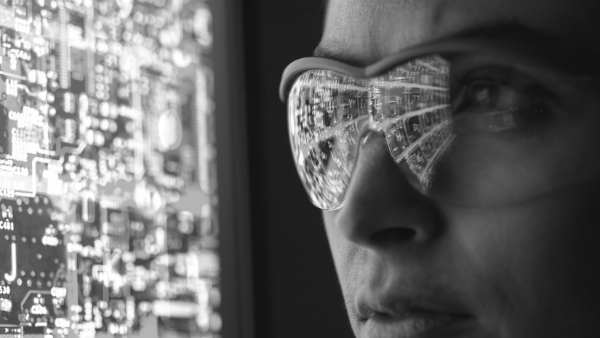This weeks’ television will be remembered for the interview of Prince Andrew and the leaders’ debate on ITV. One made you want to hide behind the sofa, the other made you fall asleep on it. Why was the leaders debate so uninspiring?
With an hour of prime-time viewing, including the opportunity to deliver a pre-prepared statement, the leaders could surely have had more ambition.
They could have been more human, more risk taking and more able to reach out beyond their base.
How the leaders could have addressed their weaknesses head on in the debate
In a former life I used to prep politicians for programmes like Question Time. If that was still my role these are the suggestions I would have made respectively to the Prime Minister and the Leader of the Labour Party.
To Boris Johnson: Some people worry about your character and integrity, so in an answer or your final statement look straight into the camera and say something like:
‘I know it may seem I have a colourful past and that I have on occasion expressed myself clumsily. It’s something I regret. But I want you to know that no one could take more seriously than me the privilege and the burden of leading this country. I promise I will strive to be a Prime Minister that everyone across this nation can be proud of’.
To Jeremy Corbyn: Some people worry that you have extreme views and would put ideology above the national interest, so in an answer or your final statement look straight into the camera and say something like:
’I am proud to be socialist, but I am even prouder to be British. I am not fighting to defend the NHS or to tackle injustice out of some abstract principle; I am doing it because I know the values of compassion and fairness are what makes this country great and what can make it greater still’.
As was the case when I did the job all those years ago, I am sure my suggestions could be improved. Whatever the words the delivery is crucial. But the point is that neither leader appeared to attempt anything as bold as this, even though to do so would surely have got the nation’s sofa sitters leaning forward.
Tony Blair’s ‘masochism strategy’ in 2005 shows TV risks can pay off
Perhaps you think it unlikely that a political leader would take such a risk. If so, it’s worth recalling the 2005 election.
In the run up to that election Labour consistently held a lead and could have chosen to play safe. The Tory leader Michael Howard was not a popular figure. However, Labour strategists like Alastair Campbell and the sadly missed Philip Gould could see that there was a lot of anger towards Tony Blair; over Iraq, over student fees and over all the other disappointments that build up when a Government has been in power for two terms.
Blair’s advisors felt that voters would not want a Labour victory to be taken as a vote of confidence in the Party’s record. Thus was born the ‘masochism strategy’.
In the months leading up to the election Blair was placed over and again in circumstances where he would be subject to outspoken criticism from real people. On one TV programme a nurse called Marion asked him: “Would you wipe someone's backside for £5 an hour?” while on another Neil from West Sussex asked: “How do you sleep at night, Mr Blair?”.
The strategy was painful and many people - including Blair himself - questioned it. But, in the end, it (along with the bias of our voting system) may have been why an unpopular Prime Minister of an unpopular Government got home with a healthy majority.
The 3 reasons the leaders election debate was so boring
So, why when the two major party leaders both have major negatives did they not use the debate to try to address and assuage voter concerns? Three reason spring to mind:
- First,perhaps both men are too brittle. Admitting to one’s weaknesses – even in a self-serving way – takes some confidence.
- Second, perhaps neither man has people around him strong enough (or that he trusts enough) to be persuaded to do risky and challenging things.
- Third, perhaps both parties and their leaders are much more concerned with mobilising their core vote than engaging the wider electorate: As long as these folk turn out, it doesn’t matter what anyone else thinks.
Who knows? Perhaps both leaders are right to be so risk-averse. On December 13th someone will be deemed to have won and then, political commentary being what it is, we will all look back on their campaign and consider it brilliant.
But even if it is good strategy, it sure ain’t great viewing.
Related articles
-
Our way through - part two: Life in the system
Anthony Painter
In part two of the Our Way Through essay series, Anthony Painter considers whether our current relationships with money, power and technology are helping or hindering society's progress.
-
Did you attend the first RSA Fellowship Townhall in September 2021?
Laura Jackson
A new CEO, a new format and new ideas – Andy Haldane marked his first day as head of the RSA in September with our first virtual Fellowship Townhall.
-
The public are ready to go further and faster on net zero
Anthony Painter
The public are ahead of policy-makers and, indeed, most of the business world. COP26 is an enormous opportunity to catch up. Global leaders should take it.




Be the first to write a comment
Comments
Please login to post a comment or reply
Don't have an account? Click here to register.